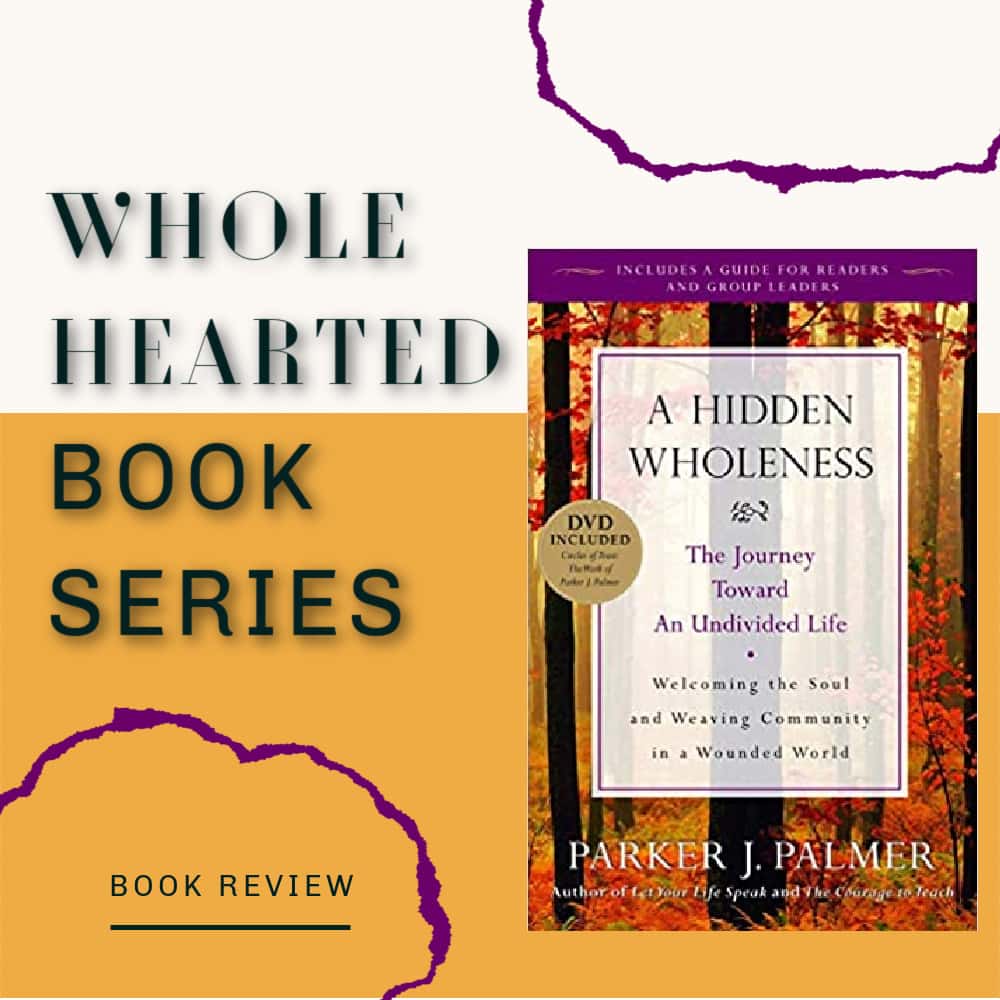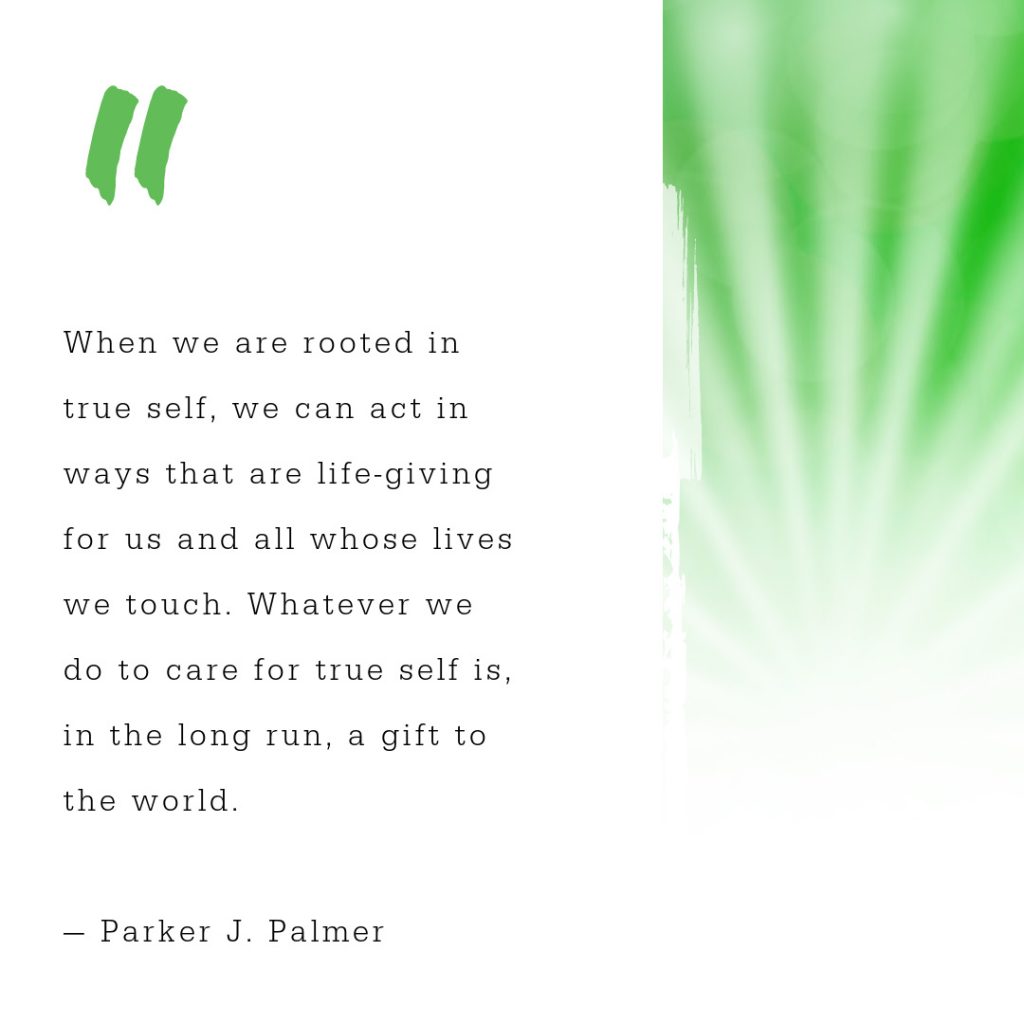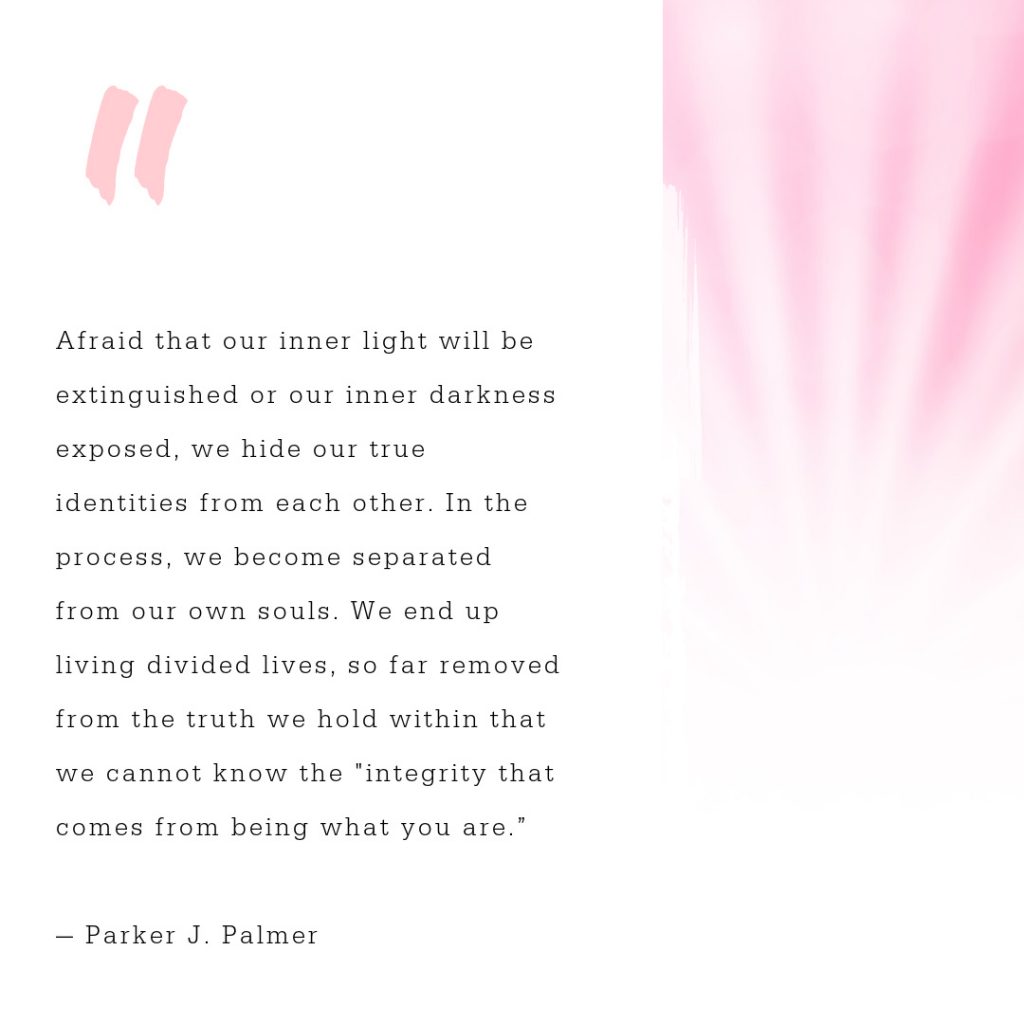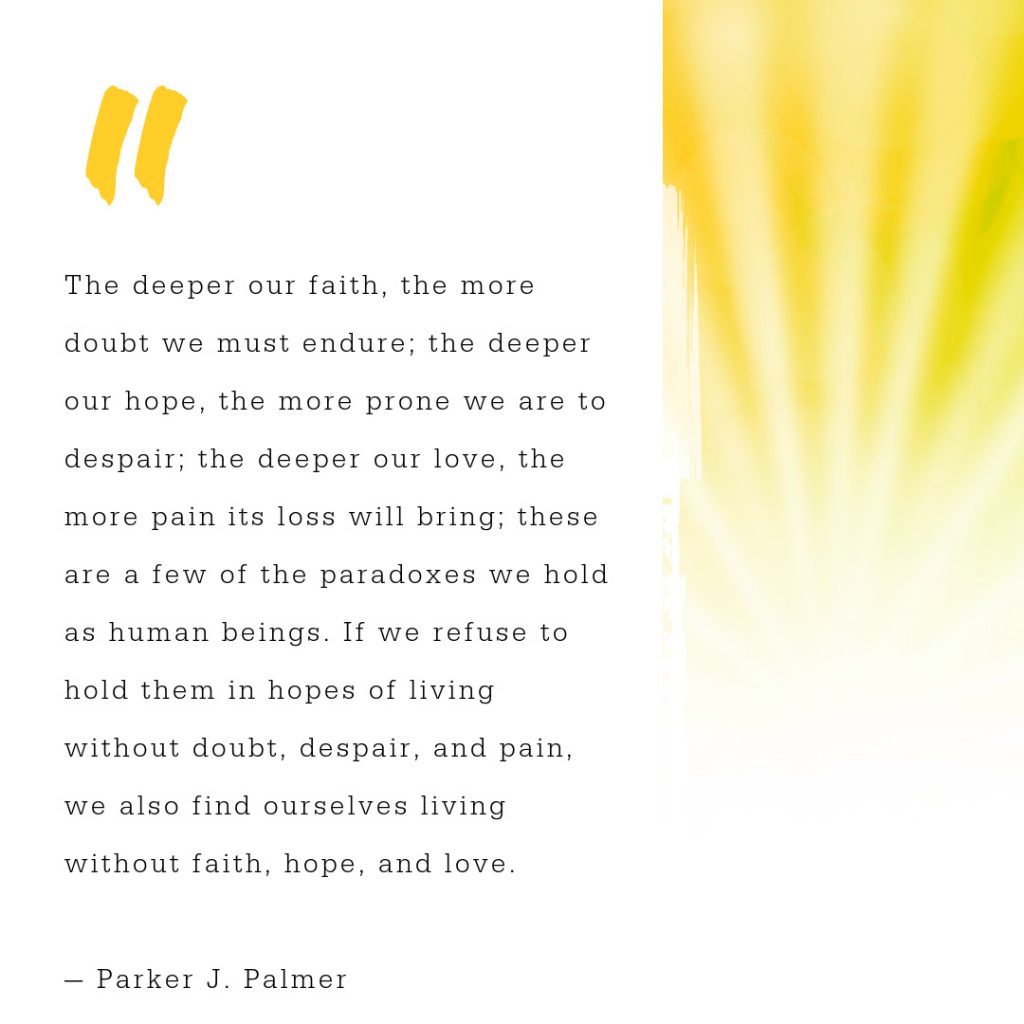Could there be a book title better suited to my word for the year than A Hidden Wholeness: The Journey Toward an Undivided Life? When I came across this book a few days after naming wholehearted as my word and intention for 2022, I knew this needed to be one of the titles I would explore this year. Written by one of the most prominent “soul whisperers” of our time, A Hidden Wholeness begins with the premise that our souls cannot be destroyed, but they can be obscured. As we go through life we tend to forget or deny our soul’s presence and guidance and stray from the soul’s shelter; this book is about helping us find our way back home.

** A quick note before I begin: Shortly into my reading I realized that Parker J. Palmer and I have fundamentally different ideas about the soul’s nature and its role in leading a wholehearted life of integrity and purpose. Whereas I believe in man’s inherently sinful nature, made whole only by the power of the blood of Jesus, Palmer seems to attribute an inherent goodness to the soul and assumes that listening to one’s “inner voice” is the key to wholeness and fulfillment. I nearly set the book aside, thinking it had little to offer me based on these differences of world view. However, once I began shifting my understanding of Palmer’s “soul” to “Holy Spirit,” I was better able to translate the book’s ideas to my own experience and belief system. I mention this because I wouldn’t want others picking up this book with the assumption that it will adhere to a traditional Christian world view; the book definitely veers into spiritual mysticism, but I found many (perhaps even most) of the takeaways applicable to me and my walk with Christ when I redefined some of the terms for myself.**
Palmer excels at taking an esoteric subject and bringing it from the abstract to the concrete. Through helpful metaphors and examples, and with a down-to-earth writing style, Palmer sheds light on his understanding of integrity and wholeness. He explains how a desire to fit in and adhere to societal pressures can lead to a dividedness that brings about feelings of fraudulence and depression; we suffer, as do our relationships when others perceive us as inauthentic and therefore unsafe. However, as we choose wholeness we are able to bring life to all whose lives we touch.

“The divided life may be endemic,” writes Palmer, “but wholeness is always a choice,” and he goes on to help us identify and pursue this wholeness. The first step is to understand the consequences of blocking ourselves from others, which prevents our inner light from illuminating our work in the world, prevents our inner darkness from being penetrated by outer light, and causes those around us to distrust our duplicity. Once we recognize the damage caused by dividedness, we become more aware of the ways our outer world has shaped our inner lives and the power we have to make choices about our inner-outer exchanges.
It is difficult to access the inner soul without help, which is where community comes in. A majority of A Hidden Wholeness is dedicated to the role community plays in soul care. Specifically, Palmer offers a chapters-long tutorial on how to cultivate what he calls “Circles of Trust”—small groups in which members “hold us in a space where we can make our own discernments, in our own way and time, in the encouraging and challenging presence of other people.” Even though I am not part of a Circle of Trust, I loved the potential for the small groups I am a part of. Community has been an integral theme for me in this season, so I paid close attention to Palmer’s direct advice for learning to listen to others, something our society (myself included) is not great at. There are suggestions for the types of helpful (but not leading) questions we can ask when helping others make decisions or form new understandings, and there is clear guidance on how and why a group can become a safe space for genuine flourishing. I was drawn to Palmer’s descriptions of group environments that are focused on healing, support, and nonjudgental listening, and I would love to adopt these practices in my own inner circles so that we, too, can become places of wholeness rather than hotbeds for gossip, griping, or unwelcome advice-giving.

All of the content relating to Circles of Trust was compelling to me, but I especially appreciated Palmer’s insights into why most groups tend to fall into unhelpful patterns. This quote in particular struck a chord: “If the shadow could speak its logic, I think it would say something like this: If you take my advice, you will surely solve your problem. If you take my advice but fail to solve your problem, you did not try hard enough. If you fail to take my advice, I did the best I could. So I am covered. No matter how things come out, I no longer need to worry about you or your vexing problem.” Ouch, that hits a little close to home! Thankfully, Palmer helps us get away from this mindset and become liberated from adversarial speaking and listening.
Another highlight of the book is its emphasis on approaching truth “at a slant” by using poetry, story, and artwork to access understanding and forge commonality and shared language within a community. I think this is why book clubs can be so bonding for their participants: in discussing literature, we are able to talk about the most important things in ways that aren’t too personal or threatening. And these abstract discussions can lead to the most intimate of understanding. Palmer and the members of his Circles of Trust understand this well.

Although this book was not what I expected, it proved to be a helpful guide in recognizing what wholeness is and how we can go about cultivating true integrity in an inhospitable world. Even though many of the foundational beliefs behind Palmer’s ideas were contrary to my own, I was able to adopt the book’s advice relating to hearing others’ stories: “Whether you find yourself drawn or repelled by the story or someone else’s interpretation of it, simply take note of your response and reflect on it.” I did that with the content of this book and was able to identify why portions didn’t resonate with me (because they were unBiblical), separating out which advice would lead to flourishing of my faith and which ideas could push me further away from a wholehearted pursuit of Christlike holiness. In the end, A Hidden Wholeness opened up parts of me that needed to be exposed and was a valuable tool for pursuing the wholeness I seek.
My Book Rating: 4 Stars.